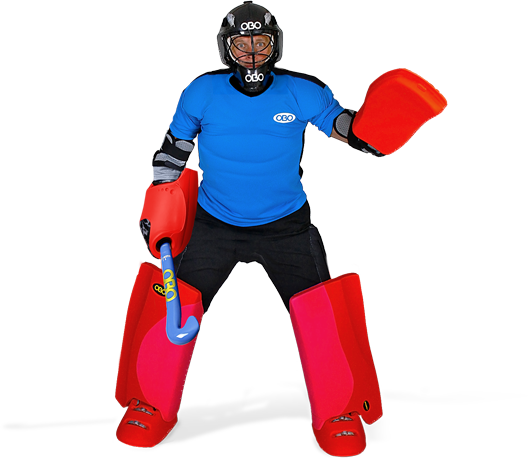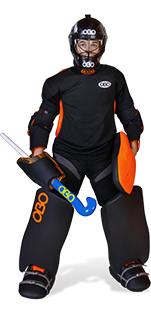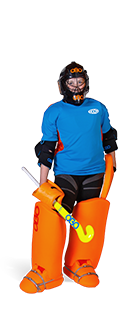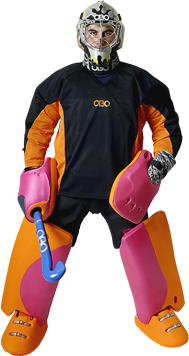KEEPERS RESOURCES

I keep letting the ball go in between my legs
 Question:
Question:
I’m a 17 year old keeper currently playing A reserve level in Australia. I’ve been playing at this level for 2 years and a couple of weeks ago played my first full A grade game. I think I’ve been playing reasonably well, except there is one part of my game really letting me down. I keep letting the ball go in between my legs. It used to happen a couple of times a season but this year it has happened an embarrassing amount of times. It seems to occur mostly on flicks or hard hits, and I somehow manage to get completely tangled around what used to be easy. It happened in my first A grade game from a penalty corner drag flick straight at me.
Answer:
I think we’ve all had a few go between the legs. In ice hockey terminology it’s called the five hole and it’s called a hole for a reason. There’s a hole, or gap, between your legs. To be able to extend to the sides to make saves, a keeper needs to have a base to push off from. If your legs are together, you have no base to push off so by the very nature of you’re ready or saving position you will have a gap.
Please take a look at the tip on the OBO website for the ready position. If nothing else, it will give you a frame of reference. In looking at the goals I’ve allowed between my legs, my biggest problem area has actually been between my thighs. I’ve generally been successful with shots between my legs below my knees by pushing off my plant/non-saving leg, opening up my instep and coming forward to make the save with either my kicker or the inside of my leg guard. Using this technique, I’m able to save and clear at the same time. Some keepers try to make saves on this type of shot by bringing their legs together and with fast shots, often still have the ball squeeze through their pads or leave bad rebounds.
Regardless of technique, there are factors that make it harder to make any save. Not being set is a common problem. If I get caught between steps and don’t have my weight balanced, any save is going to be hard. The problem you talk of, getting your legs tangled, often happens when I’m set up with my weight on one leg and the ball is hit at that leg. What should be my saving leg, is now my plant leg and I can’t do anything with it. . I risk getting wrong footed if my weight is back. If I can’t come forward with my weight on my save, it’s going to be difficult to put a positive skill on the ball.
As I mentioned, the ball between the thighs can be particularly troublesome. I’ve been ripped pretty well on reverse stick hits (the pace and unpredictability of the shot leave it as one of my least favourite). Going back to the placement, I’ve been reasonably successful making that save by closing the gap using my left hand. A lot of how a keeper sets up, depends on where the ball is, the shot that he’s expecting and his own particular strengths. With shots like a drag flick or a reverse stick hit, I keep my left hand about waist level and outside my body with my fingers forward. I can take the hand across my body to save shots between my thighs while still having the ability to take my hand up and back to make saves well to my left.
There’s a school of thought that says if you don’t know what shot to expect, make yourself big. Internationally, some keepers do this by extending their arms well outside their bodies, taking up a lot of space. The question becomes in making themselves big, do they take away space at the cost of save ability? The answer can be different according to the keeper’s abilities. You need to recognize your abilities and assess the balance to make a decision. The simple fact of the matter is in playing at your current grade, you’re probably seeing more shots at pace from a greater number of players. Shots come where you don’t expect them. Expect them. It may take some time to adjust, but if you consider positioning, save ability and the elements of your game, you’ll make the adjustments.
Comments
Leave Your Comments Below















